Having someone close to you living with complex trauma can be a difficult, overwhelming and isolating experience.
Written by a non-professional who’s only experience with complex trauma is loving someone with a lived experience.
What exactly is "complex trauma"?
Complex trauma and Post Traumatic Stress Disorder (PTSD) often get painted as the same thing. However, as I have learnt, they are two quite different beasts and require different approaches for treatment…
Although still not officially recognised in the Diagnostic and Statistical Manual of Mental Disorders, the diagnosis of Complex PTSD (‘medical speak’ for complex trauma) will be included in the upcoming International Classification of Disease (the ICD-11), which lists every single recognised ‘disease’ in the world. Nevertheless, scientists internationally have proven convincingly that complex trauma and PTSD are two distinct disorders; and therefore requiring different management and treatment.
In a nutshell, complex trauma develops following prolonged neglect and/or abuse, often starting in childhood, and almost always from interpersonal relationships. PTSD on the other hand, develops following a single traumatic event, like a car crash.
I found the following definition after a late-night googling session, on a newsletter from School District 622, an American County School at the junction of Minnesota, Iowa, and Wisconsin. While probably not considered an authority on the matter, I thought they did justice to the distinction, so I’ll share it with you:
The term complex trauma describes both children’s exposure to multiple traumatic events, often of an invasive, interpersonal nature, and the wide-ranging, long-term impact of this exposure. These events are severe and pervasive; such as abuse or profound neglect. They usually begin early in life and can disrupt many aspects of the child’s development and the very formation of a self. Since they often occur in the context of the child’s relationship with a caregiver, they interfere with the child’s ability to form a secure attachment bond. Many aspects of a child’s healthy physical and mental development rely on this primary source of safety and stability.
Whereas, simple trauma, refers to ONE traumatic event that is definable, such as an assault.
Source: https://www.isd622.org/cms/lib/MN01001375/Centricity/Domain/1962/Trauma%20Newsletter%204.pdf
Needless to say, while both sound horrible, complex trauma definitely sounds worse… and it really helped me understand why my husband struggles so much.
It brings me to tears that my beloved suffered so much as a child; did not feel the loving warmth of his mother's arms around him when he needed it most; was never given any positive affirmation; was not read to; or fed proper food. And knowing what atrocities can be perpetrated against children - mere babies! - I am weirdly thankful that he only suffered emotional neglect, and not physical or sexual abuse. I just want to go back in time to whisk him away from that life, and show him what caregivers are supposed to be like, and treat him with love and kindness.
But wishing this away is a pointless exercise. It is not going to change anything. So I’ve learnt to focus on what I can do to help him heal, and I’ll tell you what worked for us. Of course, every situation is different, and what worked for us might not work for you. And there are plenty of resources out there if you need some more ideas or support. Head to the RESOURCES section where there is a curated selection that tick all the boxes from a professional and clinical standpoint.
Now on to what worked for us. Click on the bar below to open the next section and read on (It was suggested I break up my content into more palatable bites so you didn’t feel overwhelmed with information. I’m no expert on such matters, so I did what I was told!).
Hi again! I’m glad you decided to read on.
Before I get onto the helping bit, I just want to say: You are amazing. Really! It can be excruciatingly hard to love someone who has unresolved complex trauma. And people who don’t understand, are only too happy to offer ‘helpful’ advice, like “You need to leave him!”, “He’s never going to change...”, and “Don’t you want to be with someone normal?”. And while my personal situation is loving a husband with complex trauma, the sentiment is the same - whether it is a friend, a parent, a sibling, a wife. For me, it seems unfair to abandon someone with an illness just because they can’t get the right treatment. And at the end of the day, that’s what it is. The impact of complex trauma can be 100% managed with the correct treatment. The challenge is finding that correct treatment.
And that’s where COTWA is trying to make it easier with their directory of qualified practitioners (yep, a little plug for the buggers 😋). But seriously, they are onto something with the vetting process. You can be confident that all practitioners listed on the COTWA directory have had to commit some serious professional dedication to work with complex trauma, and that they have taken on significant training and professional development to qualify for listing of this directory.
BIG DISCLAIMER HERE: If your loved one is not even willing to try, or you feel unsafe, or like you have permanently lost your zest for life, then it’s okay to let go and look after yourself. No judgement here! I Ieft my husband for about six months because he didn’t want to get help, and it was seriously affecting everything in our life. The break was good for us both. I was able to recharge and realise that in spite of everything, I still loved him; and he was able to come to his own conclusion that life wasn’t going to get better by fighting his demons, and that he had to learn to tame them.
"You are not required
to set yourself
ON FIRE
to keep others warm"
ANONYMOUS
So... how you can help...
- Realise that you can't fix them, but that you can support them in their journey. Blue Knot Foundation has a really good summary on how to provide support to a loved one with complex trauma, so CLICK HERE to read it
- While you are on Blue Knot Foundation Webpage, browse around the section for supporters - they have loads of other information like HOW TO SUPPORT YOURSELF, FACTSHEETS, UNDERSTANDING TRAUMA, HOW TO TALK TO YOUR LOVED ONE ABOUT THEIR TRAUMA, and a whole lot more.
- Check out our list of helpful, clinically responsible RESOURCES.
- BROWSE OUR SPATIAL DIRECTORY OF TRAUMA_TRAINED THERAPISTS and see if any could be a good fit for your loved one.
- Check out the SURVIVORS page where we have provided some information about what to expect from trauma therapy, as well as how to navigate rebates and financial support for treatment.
- It has been designed with the input of survivors to be both trauma-informed in its design, and meeting the needs that survivors have indicated they seek when choosing a trauma therapist
- Practitioners approved for inclusion here are not self-assessed psychotherapists claiming expertise in complex trauma
- The training and expertise of every clinician have been independently assessed and verified by Blue Knot Foundation, Australia’s National Centre of Excellence for complex trauma
- Referrers and survivors can trust that clinicians listed here are trauma-informed, competent, and experienced clinicians who meet best-practice guidelines for evidence-based treatments in trauma-specific clinical expertise
- Every clinician on this Directory has moved away from asking, “What’s wrong with you?” Instead, we ask, “What’s happened to you?”
Every clinician listed:
- Is a Clinical Member of COTWA, and hence meets internationally accepted best-practice standards for trauma-specific skills in treating adults, children, or families who have a lived experience of complex trauma:
- Holds a current unrestricted practicing certificate with an eligible Australian professional regulatory body for their discipline, at the level of full membership.
- Has been thoroughly assessed to possess the required knowledge-base and skill-set required for trauma-informed practice
- Has a minimum of three years full-time (or equivalent) professional experience working as trauma-specific therapists in direct clinical service delivery with survivors
- Has provided a written references from two colleagues (one of whom must be a clinical supervisor) who vouched for their clinical expertise as trauma-trained practitioner.
For this process, referees are asked to provide information on how long they’ve known the clinician and in what context; how regularly they had contact with the clinician to get an informed view of their work; and also to comment on what they know about the clinician’s complex-trauma case load; and whether they would, based on their experience of the clinician and their work, recommend that person as a competent trauma-informed service provider. - And finally, has had to demonstrate their knowledge and training in trauma-informed practice applicable for supporting people with complex trauma by:
- Listing detailed information on the relevant professional development undertaken in the past five years, that is specific to the treatment of people with a history of complex trauma.
- Specifying which trauma-specific treatment modalities they use, and what training at what level they have received in those modalities.
- Describing the general therapeutic approach they use when working with people with a lived experience of complex trauma.
They are also required to specifically reference how they incorporate the Blue Knot Foundation’s Practice Guidelines for Treatment of Complex Trauma and Trauma Informed Care and Service Delivery’, with practical examples of how the core trauma-informed principles of safety, trustworthiness, collaboration, empowerment, choice, and respect for cultural and other forms of diversity are implemented in their trauma-specific clinical work. - Convincingly demonstrating that they offer person-centred and tailor-made treatments that caters to every individual’s unique needs; while simultaneously heeding the distinctive features, coping strategies, and challenges of which therapists need to take account when working with trauma that is interpersonally generated (insofar as it is distinct from other types of trauma, with which it may co-exist)
We invite you to inform us of your experience with any listed service, or to make any suggestions regarding the information provided in the directory by getting in touch via the Contact Us form in the website footer. For those requiring urgent assistance, please see the EMERGENCY NUMBERS on our Home page.
- Private Practice
- Government
- Not for profit/Non-government organisation
- Psychiatrist
- Clinical Psychologist
- Psychologist (General)
- Clinical Neuropsychologist
- Psychotherapist
- Counsellor
- Mental Health Nurse
- Accredited Mental Health Social Worker
- Clinical Social Worker
- Occupational Therapist
- General Practitioner
- Other
- Medicare
- Private Health Insurance
- Victims of Crime
- WorkCover WA
- Department of Veterans Affairs
- National Disability Insurance Scheme
- Medicare bulk billing (no gap)
- Pro bono
- Low cost sessions (under $35)
- Reduced fees by negotiation
- AHPRA (Australian Health Practitioner Regulation Agency)
- PACFA (Psychotherapy and Counselling Federation of Australia)
- APS (Australian Psychological Society)
- AASW (Australian Association of Social Workers)
- ACA (Australian Counselling Association)
- In person
- Online/Video conference
- Telephone
- Home visit
- Outdoors
- Eye-Movement Desensitisation and Reprocessing (EMDR)
- Trauma-Focused Cognitive Behavioural Therapy (TF-CBT)
- Internal Family Systems (IFS)
- Developmental Needs Meeting Strategy (DNMS)
- Attachment-based Therapy
- Sensorimotor Psychotherapy
- Somatic Experiencing
- Body-oriented psychotherapy
- Trauma-based narrative therapy
- Exposure therapy
- Skills training in Affective and Interpersonal Regulation
- Stress Inoculation Training
- Addiction and Trauma Recovery Integration Model (ATRIUM)
- Dialectical Behavioral Therapy (DBT)
- Psychodynamic psychotherapy
- Humanistic psychotherapy
- Feminist therapy
- Creative therapies (e.g. sand play, art therapy)
- Trauma-informed meditation
- Attachment trauma
- Domestic or family violence
- Child sexual abuse
- Incest
- Childhood neglect
- Systemic oppression
- Cults or Organised abuse
- Sexual Assault including Rape
- Post Traumatic Stress Disorder (PTSD)
- Alcohol and other drug addictions
- Dissociation (including Dissociative Identity Disorder)
- People who have experienced sexual abuse in institutions
- Perpetrators of child abuse
- Non-offending pedophiles
- Homelessness
- Poverty
- ADHD
- Autism
- Other special-needs
- Sexual intimacy issues
- Financial Issues
- Parenting issues
- Harm reduction
- Providing court support to victims and their family/friends
- Writing court/forensic reports
- Men
- Women
- Lesbian
- Gay
- Bisexual
- Transgender
- Transexual
- Queer/Questioning
- Intersex
- Asexual
- Couples
- Families
- Children (pre school)
- Children (primary school)
- Children (high school)
- Young adults (age 16-25)
- Older people (over age 65)
- Groups
- Aboriginal and Torres Strait Islander people
- Migrants
- Refugees and asylum seekers
- People with disabilities
- Carers/Loved Ones
- English
- Afrikaans
- Albanian
- Arabic
- Armenian
- Basque
- Bengali
- Bulgarian
- Catalan
- Cambodian
- Chinese (Mandarin)
- Croatian
- Czech
- Danish
- Dutch
- Estonian
- Fiji
- Finnish
- French
- Georgian
- German
- Greek
- Gujarati
- Hebrew
- Hindi
- Hungarian
- Icelandic
- Indonesian
- Irish
- Italian
- Japanese
- Javanese
- Korean
- Latin
- Latvian
- Lithuanian
- Macedonian
- Malay
- Malayalam
- Maltese
- Maori
- Marathi
- Mongolian
- Nepali
- Norwegian
- Persian
- Polish
- Portuguese
- Punjabi
- Quechua
- Romanian
- Russian
- Samoan
- Serbian
- Slovak
- Slovenian
- Spanish
- Swahili
- Swedish
- Tamil
- Tatar
- Telugu
- Thai
- Tibetan
- Tonga
- Turkish
- Ukrainian
- Urdu
- Uzbek
- Vietnamese
- Welsh
- Xhosa
|
["Clinical Psychologist"]
|
|
|
|
Regulation Agency: AHPRA Psychology Board (Australian Health Practitioner Regulation Agency)
|
|
Languages Spoken: ["English","Afrikaans"]
|
|
Douro House Psychological Health Care
(Private Practice)
|
|
|
|
0437883465
|
|
http://psychologistsinperth.com.au
|
| Train: 500m-1km |
| High frequency bus: <200m |
| Low frequency bus: 200m-500m |
|
|
Video of spoken profile
Audio of spoken profile
Hello. My name is Sonia.
I am passionate about doing whatever is within my power to protect children; and to help make sure that adults who got hurt by the very people who should have protected them when they were vulnerable, get the kind of help they need when they ask for it.
To this end, I am a clinical psychologist in private practice working primarily with adult survivors of complex childhood trauma. I also started the Perth Complex Trauma Mental Health Professionals Network, and served as founding chairperson for Complex Trauma WA for the first few years.
Currently, my practice is switching from an individual psychotherapy service to a complex-trauma supervision and training practice, so that I can support more service providers to feel competent and confident working with survivors in non-triggering, helpful ways.
As I am unable to guarantee seeing the work through with new clients, I’ve had to close my books and I am unable to accept new referrals.
Please feel free to still contact me if you are looking for a trauma-trained psychotherapist. I have compiled a list of helpful resources (in addition to the ones on this website), and would be happy to share this with you if you think that might be helpful.
I love my work, and I feel privileged to work with the people I do. I have the utmost respect for the tremendous courage, tenacity, and resourcefulness of every survivor of childhood complex trauma, irrespective of what you’ve had to do to survive. You can trust that I do what I need to do to look after myself too, so that you don’t have to.




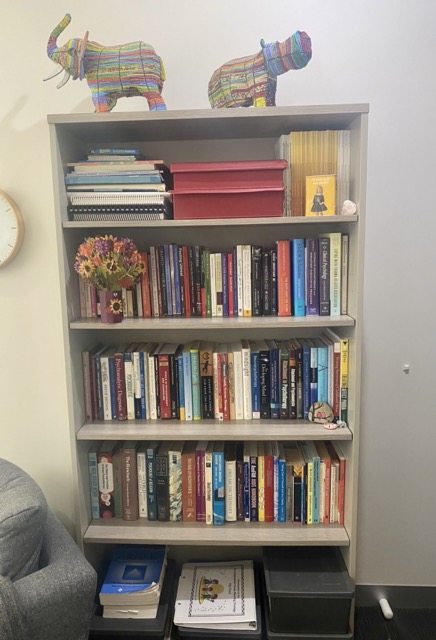
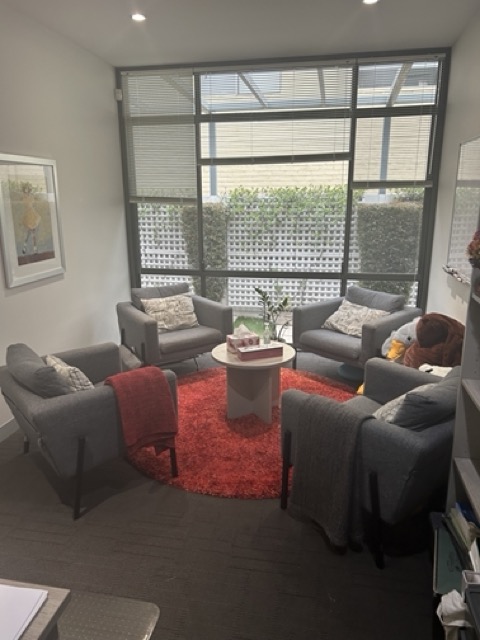
|
["Clinical Psychologist"]
|
|
|
|
Regulation Agency: AHPRA Psychology Board (Australian Health Practitioner Regulation Agency)
|
|
Languages Spoken: ["English","Portuguese"]
|
|
B.Minded Psychology Pty Ltd
(Private Practice)
|
|
|
|
(08) 6261 0529
|
|
08 8490 5522
|
|
email info@bminded.com.au
|
|
https://bminded.com.au/
|
| Train: >1km |
| High frequency bus: 500m-1km |
| Low frequency bus: 500m-1km |
|
|
Video of spoken profile
Audio of spoken profile
Ana Santos is a registered clinical psychologist in private practice. She has practiced, trained in, and managed Trauma and Psychological First Aid with the United Nations services in Kosovo and East-Timor, Portuguese Red Cross, fire-fighters, police forces, correctional services, as well as in private-practice contexts. Ana has extensive experience working with diverse populations across the life span. She has facilitated group workshops across Europe, Africa, and Australia.
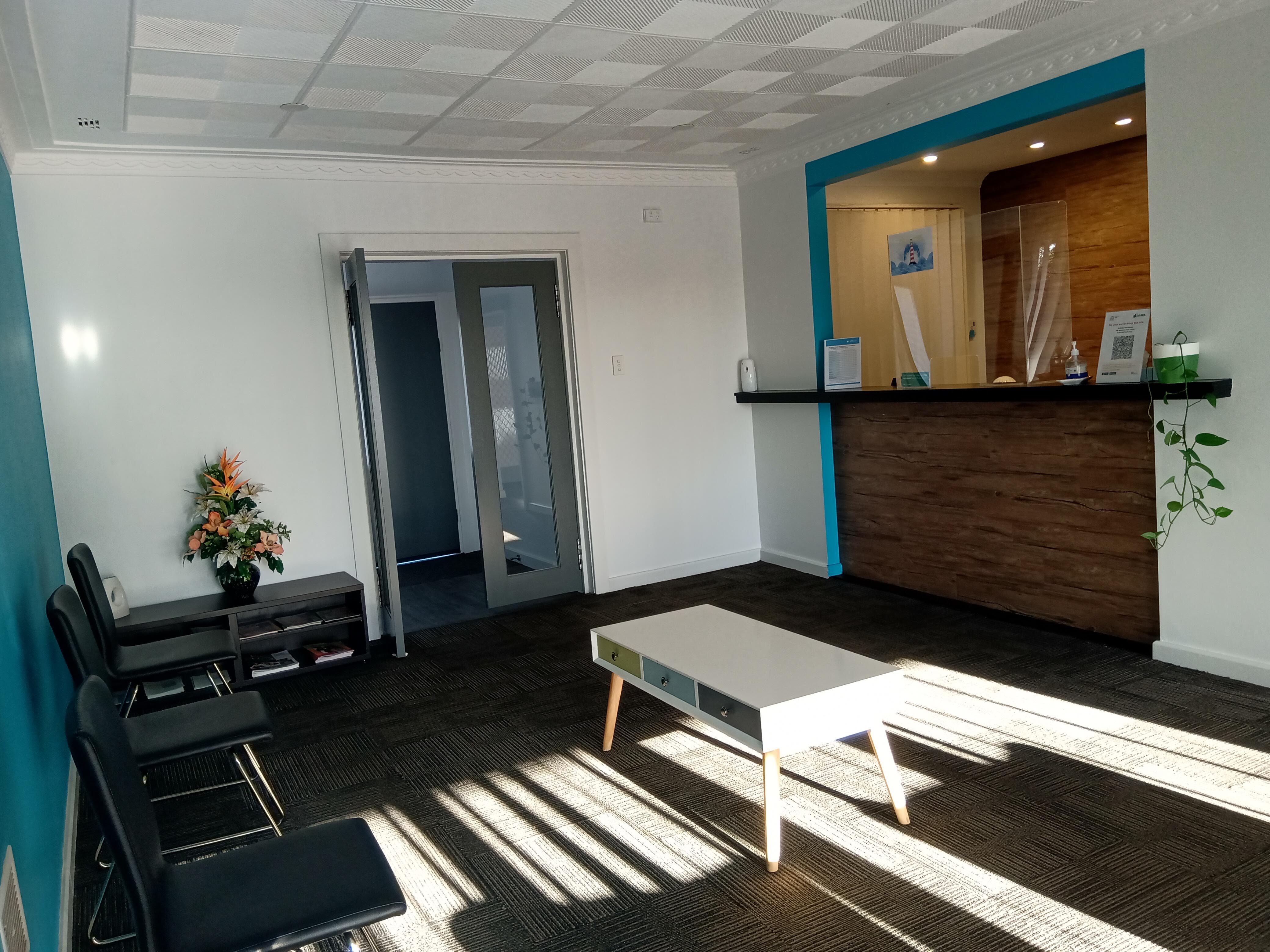



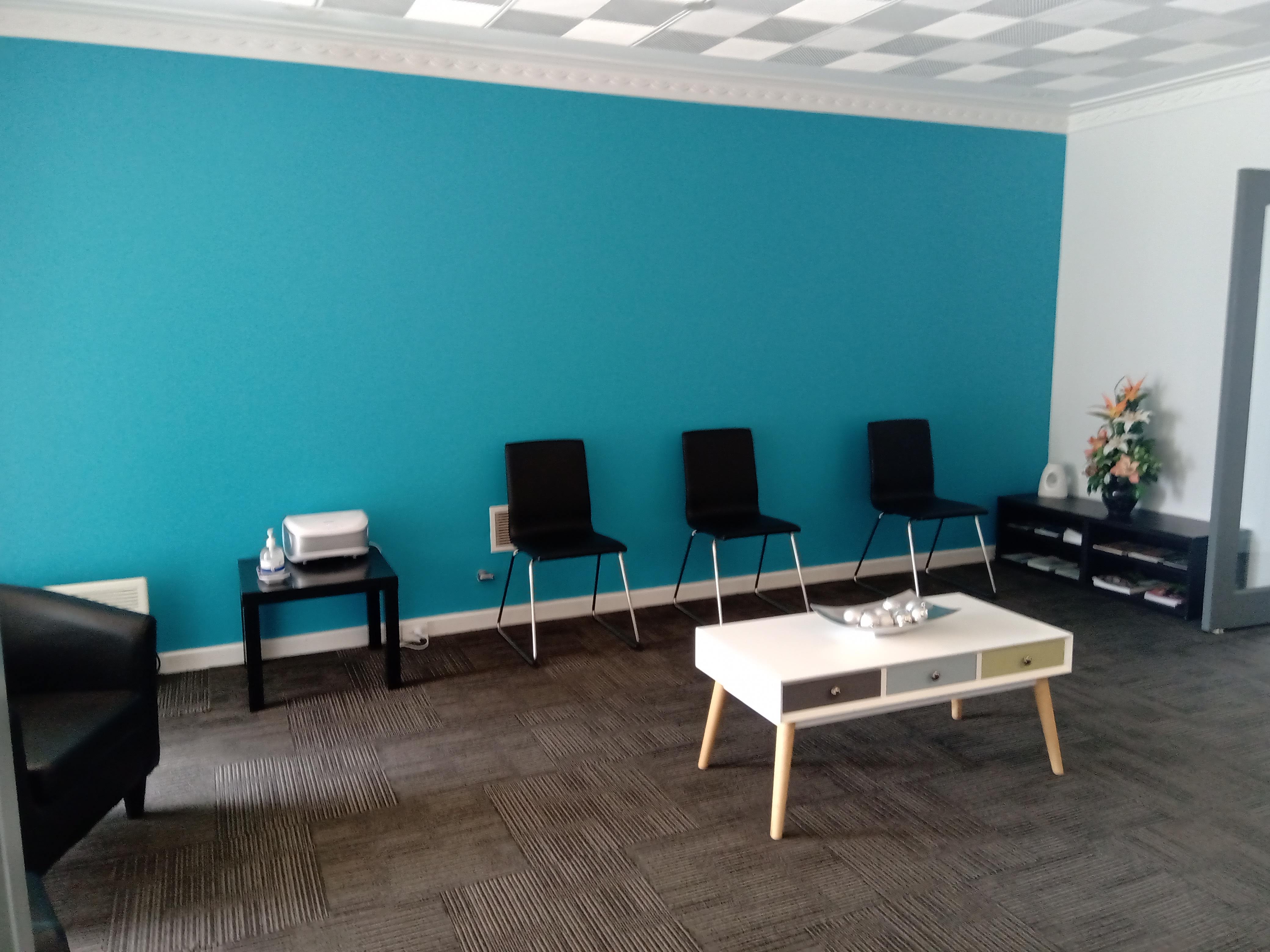
|
["Clinical Psychologist"]
|
|
|
|
Regulation Agency: AHPRA Psychology Board (Australian Health Practitioner Regulation Agency)
|
|
Languages Spoken: ["English"]
|
|
Dr Esther Kint
(Private Practice)
|
|
|
|
0401227312
|
|
email contact@drkint.com.au
|
| Train: >1km |
| High frequency bus: 200m-500m |
| Low frequency bus: 200m-500m |
|
|
Video of spoken profile
Audio of spoken profile
I am a registered Clinical Psychologist and have been working in Private Practice for 8 years now. I am self-employed and have a lovely bright and airy office in Como, with river glimpses. It is a warm and inviting space, and many of my client's comment on how "at home" they feel in this space.
My particular interest lies in treating trauma-related conditions (i.e. attachment difficulties, difficulties with self-regulation, difficulties in sustaining healthy relationships, PTSD, and BPD), and I draw on a range of treatment modalities including trauma focused-CBT, DBT, Schema Therapy, and EMDR. Each year, I attend ongoing professional development to enhance my skills and ensure I am equipped with the most up to date and evidence-based treatment approaches.
I pride myself on being a warm, authentic, and compassionate therapist, who focuses on identifying my client's strengths, rather than focusing solely on the problem itself. My aim is to create a relaxed and supportive therapeutic environment, that encourages client's to feel safe to explore their presiding difficulties at their own pace.
|
["Psychologist (General)"]
|
|
|
|
Regulation Agency: AHPRA Psychology Board (Australian Health Practitioner Regulation Agency)
|
|
Languages Spoken: ["English"]
|
|
South West Wellbeing Centre
(Private Practice)
|
|
|
|
08 9791 9955
|
|
0411138036
|
|
08 9791 9958
|
|
email info@swwellbeing.com.au
|
|
https://www.swwellbeing.com.au/
|
| Train: >1km |
| High frequency bus: 500m-1km |
| Low frequency bus: 200m-500m |
|
|
Video of spoken profile
Audio of spoken profile
Jay is a experienced clinician, who has worked with people for many years. She has a lovely friendly therapy dog who can join you for your sessions if you find that beneficial. Jay uses several different techniques and has broad training, to assist clients to feel safe and be able to discuss whatever it is that is beneficial. Jay has a strong focus on life now, and living to enjoy life and looks forward to meeting you.







|
["Clinical Psychologist"]
|
|
|
|
Regulation Agency: AHPRA Psychology Board (Australian Health Practitioner Regulation Agency)
|
|
Languages Spoken: ["English"]
|
|
Karrinyup Psychology
(Private Practice)
|
|
|
|
08 9245 1011
|
|
https://www.chapmancounselling.com.au
|
| Train: >1km |
| High frequency bus: <200m |
| Low frequency bus: <200m |
|
|
Video of spoken profile
Audio of spoken profile
My name is Annaliese and I am a Clinical Psychologist and Gestalt therapist, and I work in private practice in Perth. My office is located within a friendly physiotherapy practice, Karrinyup Physiotherapy, and I use their reception and reception staff. I have a lovely bright office space on the 1st floor, with big windows overlooking bushland.
I see adolescent and adult clients with a range of difficulties, and I have done extensive training in the treatment of complex trauma. I have been practicing as a Clinical Psychologist for over 20 years, and I have completed an additional 4-year training in Gestalt therapy.
My philosophy when working with clients is that we both bring expertise into the room – they with their knowledge and expertise of themselves, and me with my training, and that our work is a co-creation influenced by our combined expertise. I aim to pace therapy at the speed a client is comfortable with, with the aims of therapy collaboratively planned.
I am in awe of the incredible courage and strength of survivors of trauma, and the creativity of the human body and mind to find a way to survive and adapt.




|
["Clinical Psychologist"]
|
|
|
|
Regulation Agency: AHPRA Psychology Board (Australian Health Practitioner Regulation Agency)
|
|
Languages Spoken: ["English"]
|
|
South West Wellbeing Centre
(Private Practice)
|
|
|
|
08 9791 9955
|
|
0411 138 036
|
|
08 9791 9958
|
|
email info@swwellbeing.com.au
|
|
http://www.swwellbeing.com.au/
|
| Train: >1km |
| High frequency bus: >1km |
| Low frequency bus: <200m |
|
|
Video of spoken profile
Audio of spoken profile
My name is Dr. Stephanie Marie Jones, my pronouns are she/her, and I am a clinical psychologist. I completed my clinical doctorate of psychology at the University of Western Australia in 2013, after which I worked for two years with people facing barriers to employment. I then spent two years in private practice in Joondalup, before moving down to Bunbury, where I have been at the South West Wellbeing Centre ever since.
I have enjoyed working with clients with complex trauma throughout my career, and over the years I have expanded my skill set to enable me to assist these clients more effectively. I particularly enjoy working with clients experiencing voice hearing and dissociation, and honouring the important purposes that these phenomena serve. I welcome clients of diverse gender and sexuality, neurodivergent clients, and clients of all cultural, linguistic, and religious backgrounds.
In my spare time I enjoy digital painting, growing fruits and vegetables, baking bread, and table-top roleplaying games such as Dungeons and Dragons.





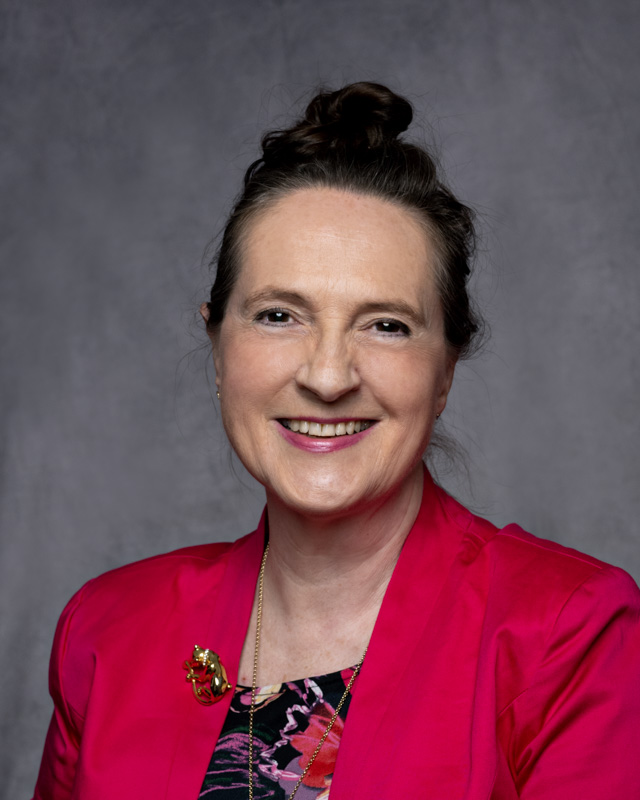
|
["Counsellor"]
|
|
|
|
Regulation Agency: ACA (Australian Counselling Association)
|
|
Languages Spoken: ["English"]
|
|
Solas Leighis Counselling
(Private Practice)
|
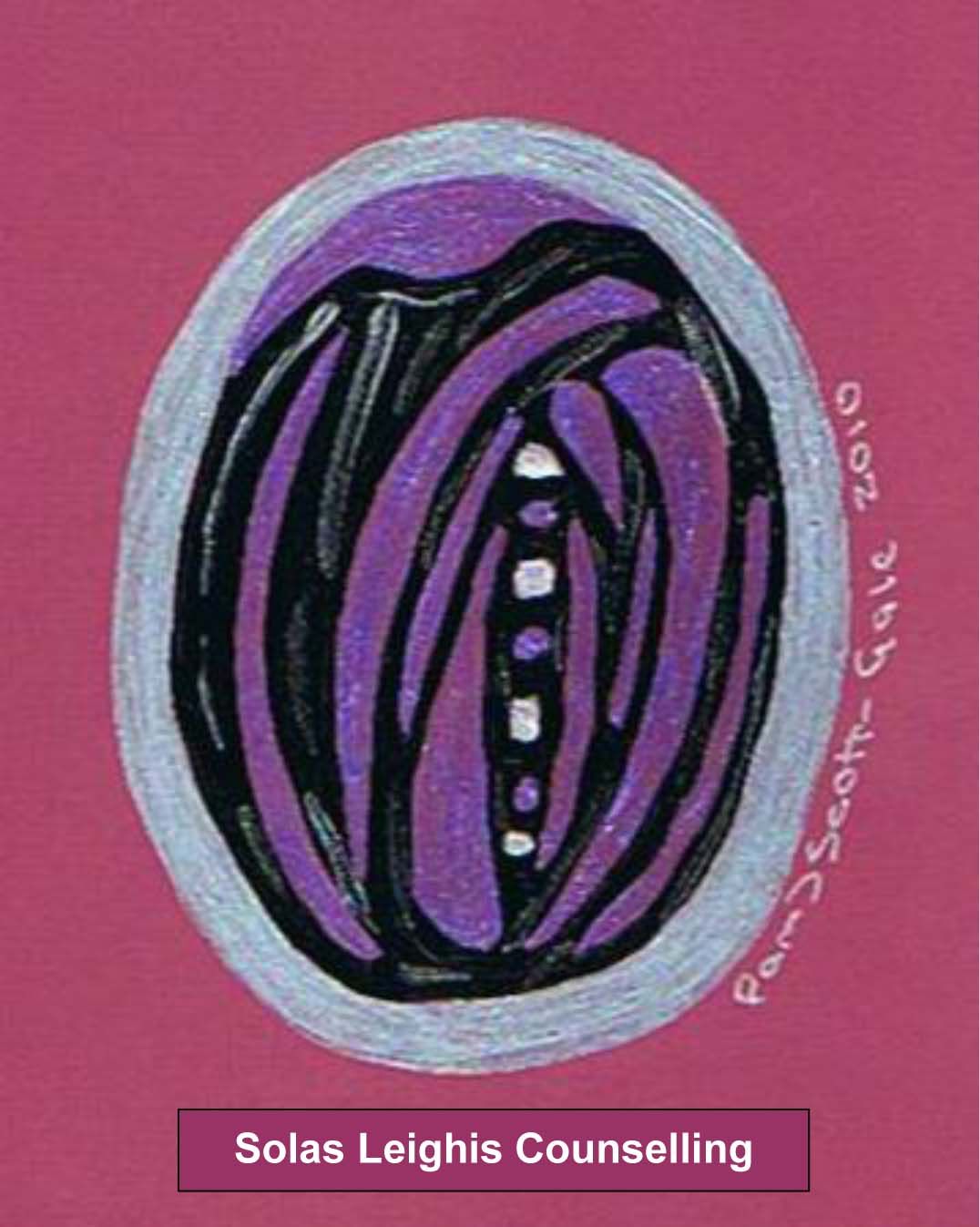 |
|
0426 844 127
|
|
https://www.solasleighiscounselling.com/
|
|
https://www.solasleighiscounselling.com/make-an-appointment
|
|
https://www.psychologytoday.com/au/counselling
|
| Train: >1km |
| High frequency bus: >1km |
| Low frequency bus: >1km |
|
|
Video of spoken profile
Audio of spoken profile
Please see my website for more details.
At the first session I always allow some extra time for you my client, which is included in the fee. This allows you time to settle in and adjust to your new surroundings.
It also gives plenty of time to complete the paperwork and clarify any questions that you may have regarding my work, experience or about me as your therapist and the modalities that I may utilise to assist you on your courageous journey of discovery, understanding and healing.
I have two cats, which are not therapy animals per se, however one of them always seems to know when my clients need that little bit extra comfort.
I utilise a variety of resources to empower, enable, encourage, enrich my clients that caters for each clients different learning style.
Therapy is always a collaboration with my client as this is your session, so we go where you need to go in that specific moment in time.
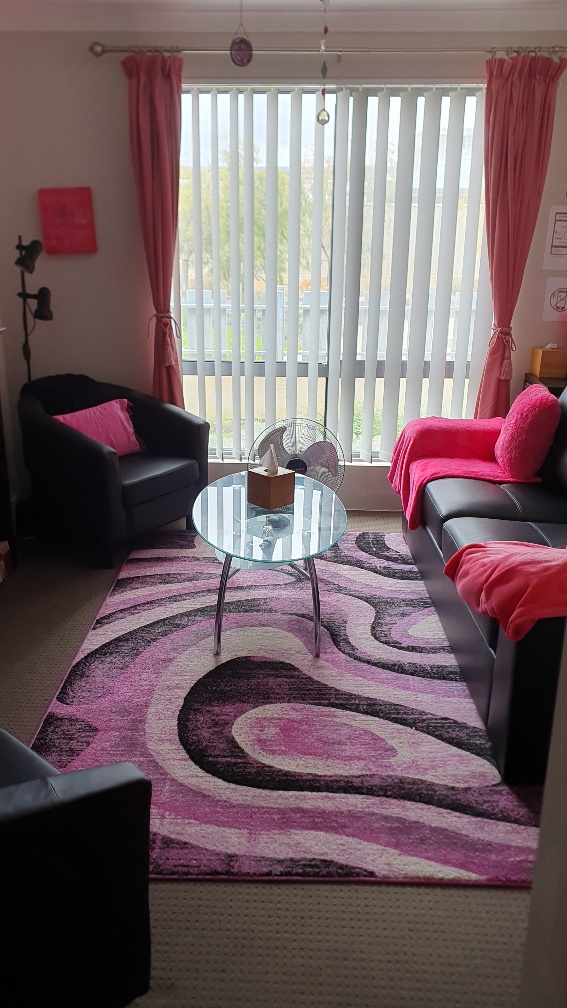

|
["Psychotherapist"]
|
|
|
|
Regulation Agency: PACFA (Psychotherapy and Counselling Federation of Australia)
|
|
Languages Spoken: ["English"]
|
|
Diana Phillips Psychotherapy
(Private Practice)
|
|
|
|
0434058338
|
|
https://bunburypsychotherapy.com.au/
|
| Train: >1km |
| High frequency bus: >1km |
| Low frequency bus: >1km |
|
|
Video of spoken profile
Audio of spoken profile
Diana has lived in the Bunbury region since 1982, having been born and bred on a farm in the wheat belt of W.A. She did her secondary education at Albany HS and tertiary at UWA. Diana first worked as an educator in senior science and zoology in high schools and at UWA with undergraduate students, after which time she had, and raised, four children. Then for 23 years she managed her husband’s law practice and while doing this in 1995 began studying for her own career in analytical psychotherapy, graduating from Churchill clinic in 2000. She has been in private practice in Bunbury since 1996, first as a student under supervision, and then in her own right since 2000. Diana's practice is very mixed as practices are in country regions; from full on analytic work that extends over several years, to counselling and relationship issues, from teens through to seniors including various types and stages of mental illness, and all life stages and difficulties. Diana's is a very full practice within which she works in the psychodynamic way, dealing with the childhood issues and their impacts on future lives. Diana has worked with trauma sufferers for over 20 years, including many clients who have suffered complex trauma, with and the resulting dissociative disorders and DID. Diana cares deeply about complex trauma sufferers and is dedicated to helping them heal. Diana is a clinical member of PACFA, an accredited PACFA mental health practitioner and an accredited PACFA and AAoS clinical supervisor







|
["Psychologist (General)","Psychotherapist"]
|
|
|
|
Regulation Agency: AHPRA Psychology Board (Australian Health Practitioner Regulation Agency)
|
|
Languages Spoken: ["English"]
|
|
Dr Valerie van Loggerenberg
(Private Practice)
|
|
|
|
0437128465
|
|
email drvalerie@zoho.com
|
|
http://www.drvalerie.org
|
|
https://app.acuityscheduling.com/schedule.php?owner=17903838&appointmentType=10545306
|
| Train: >1km |
| High frequency bus: >1km |
| Low frequency bus: >1km |
|
|
Video of spoken profile
Audio of spoken profile
Valerie holds a Doctor of Psychology degree and has studied and worked in a number of industries from health to law. Her academic qualifications are in both psychology and business. She has had involvement in counselling, training, multicultural affairs and business management. Valerie's work experience includes local and overseas work in Perth and South-East Asia. This has equipped her for providing a variety of psychological services.
In terms of counselling, Valerie has a focus on anxiety, depression and trauma. She can assist people in transitioning through life stages, dealing with conflict (in particular adolescent and family issues), work related stress (including responding to critical incidents and post-traumatic stress) and general life skills. Valerie uses a trauma informed model of care as recommended by Blue Knot Foundation and ISSTD.
